Abstract
Pairs of high-school students matched-to-sample for money. On each trial, the first pair member to complete a fixed ratio of knob-pulling responses could work the matching problem on that trial. Competition occurred when both pair members responded for the problem. Sharing occurred when only one pair member responded on each trial, and the subjects alternated trials. Hence, sharing requires less responding and still allows a moderate number of reinforcers for each subject. Recent research has shown that increasing the response requirement to the point that it may have aversive properties will produce a change from competition to sharing. A related variable is an adjusting schedule that adjusts the subjects' response requirements so that their abilities to take reinforcers are equal. In this way, subjects might learn that competition requires more responding but produces no more reinforcers. However, recent research also suggests that competition decreases over sessions without experimental manipulations. Because of this possibility of a time-related variable, ratio size and an adjusting schedule were studied in a group design. Competition did decrease for all groups over sessions, but the large-ratio groups switched from competition to sharing sooner than the low-ratio groups. The adjusting schedule had a similar but smaller effect.
Keywords: competition, sharing, cooperation, ratio requirement, adjusting schedule, audit, match-to-sample, knob pull, high-school students
Full text
PDF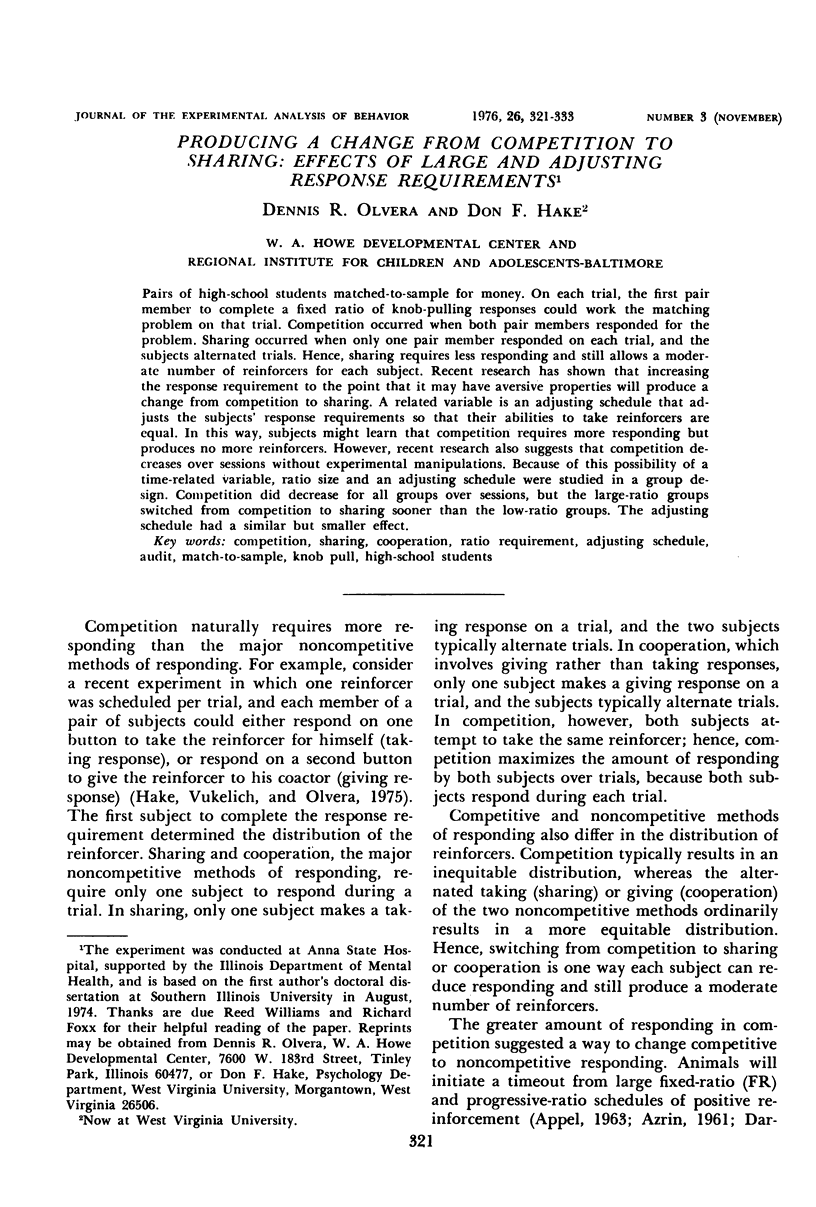
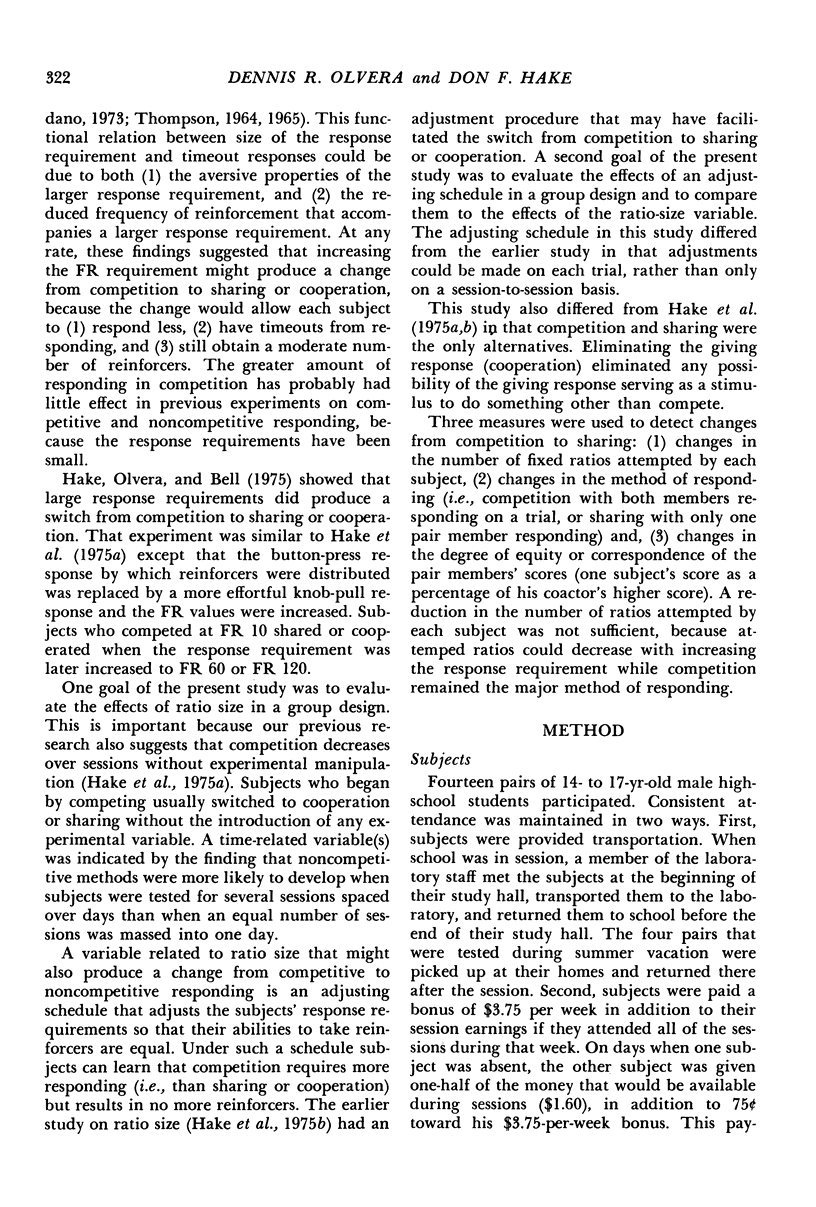
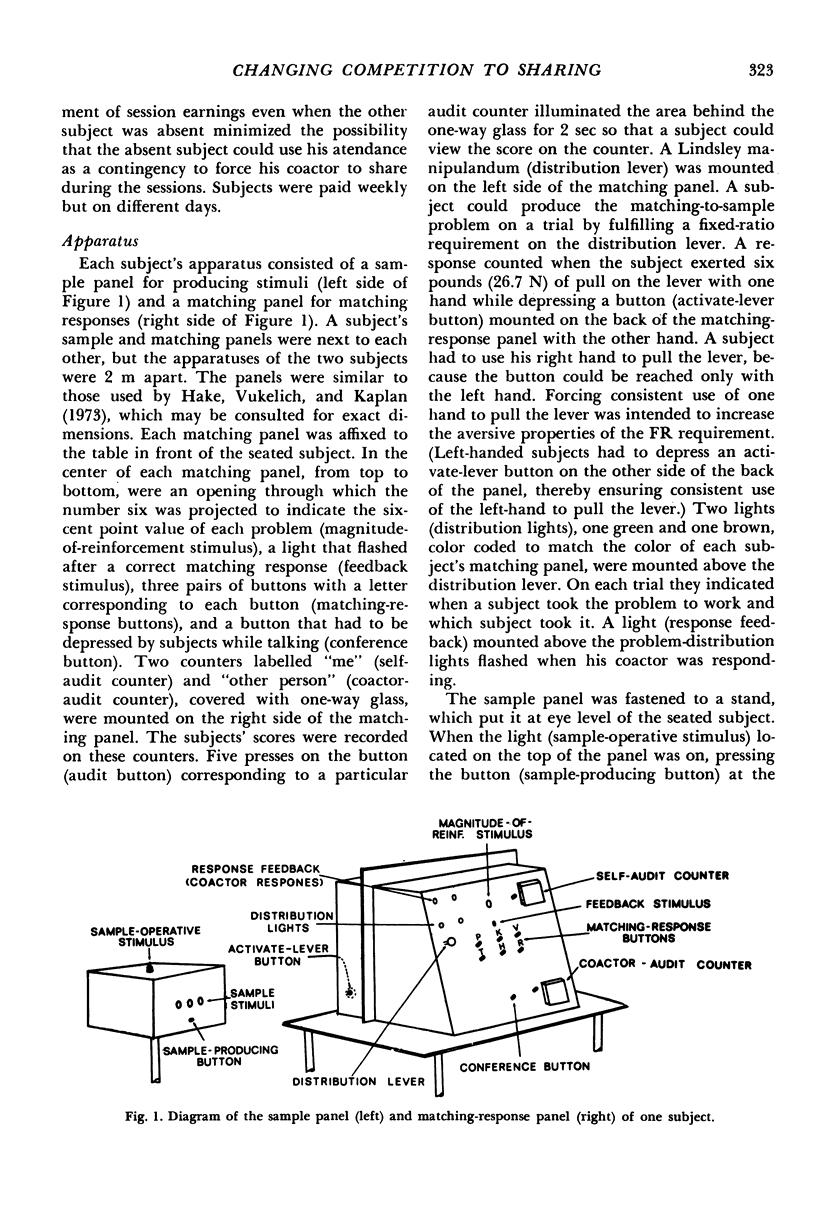
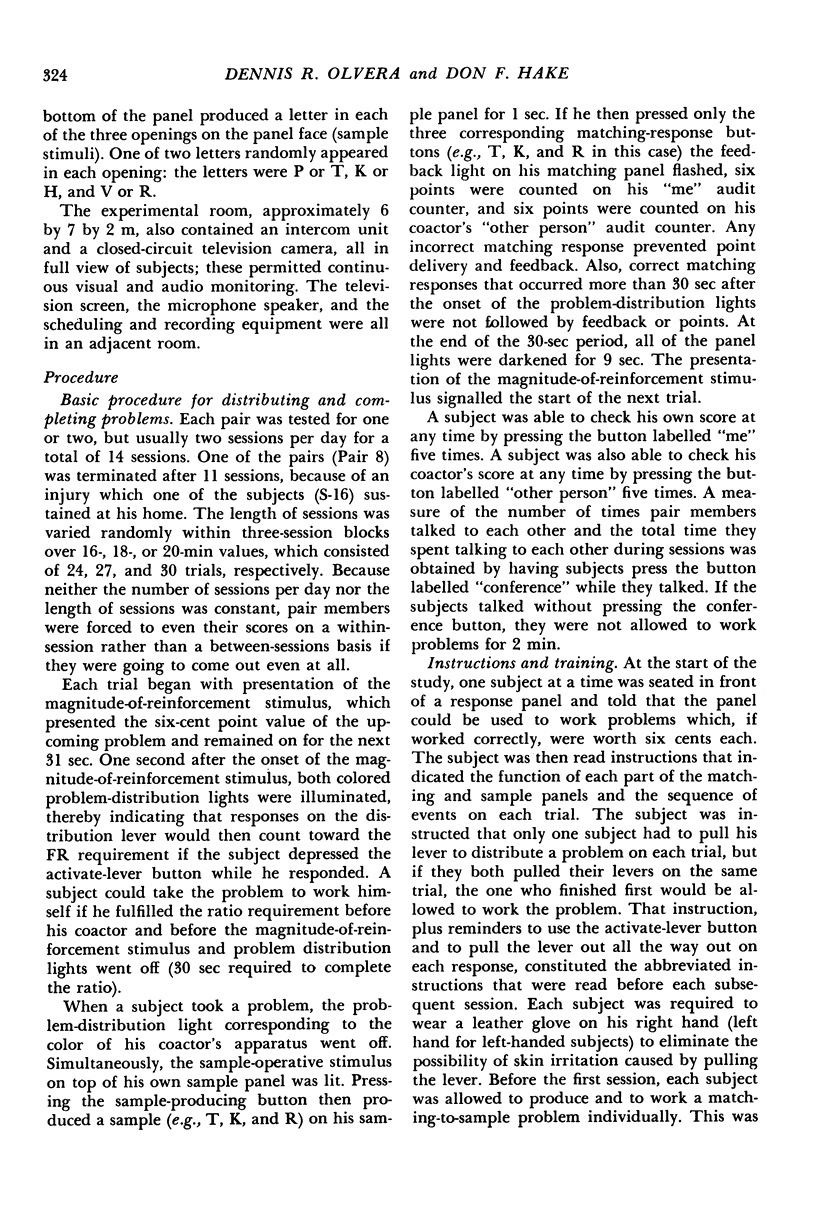
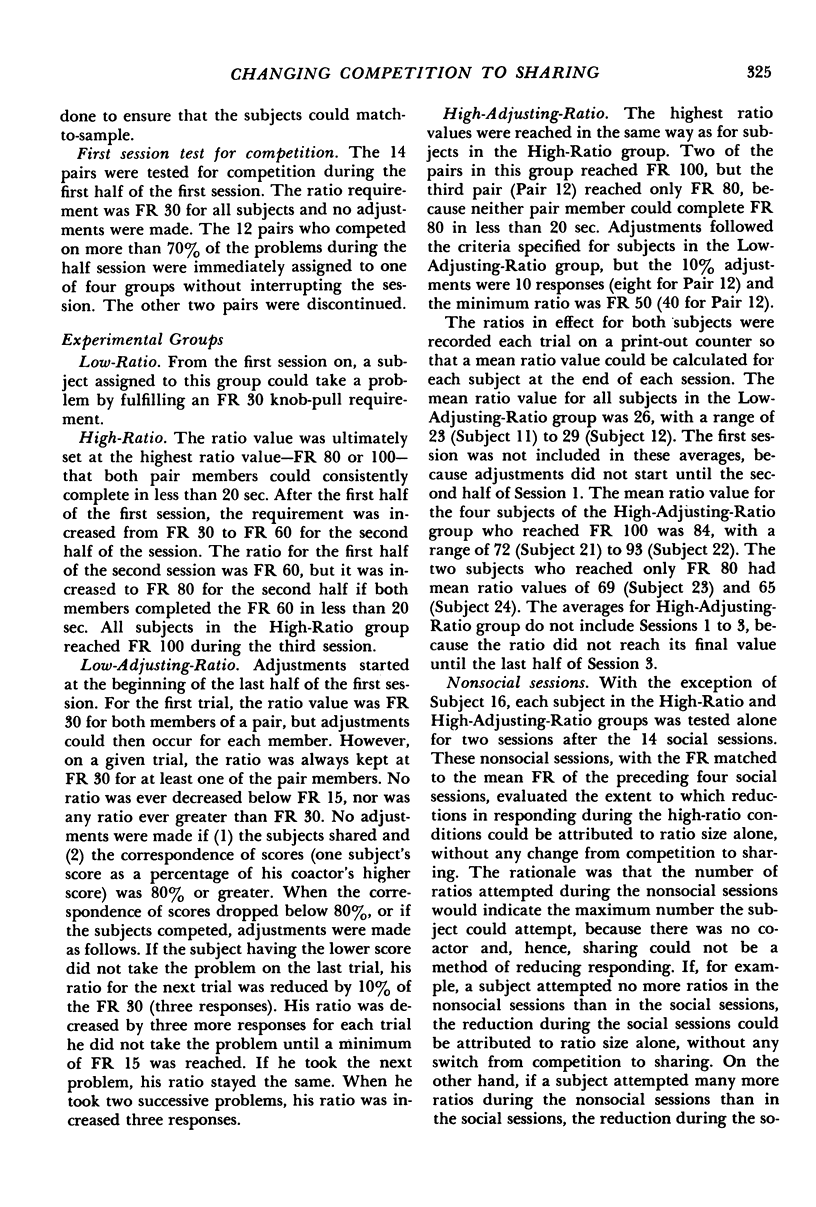
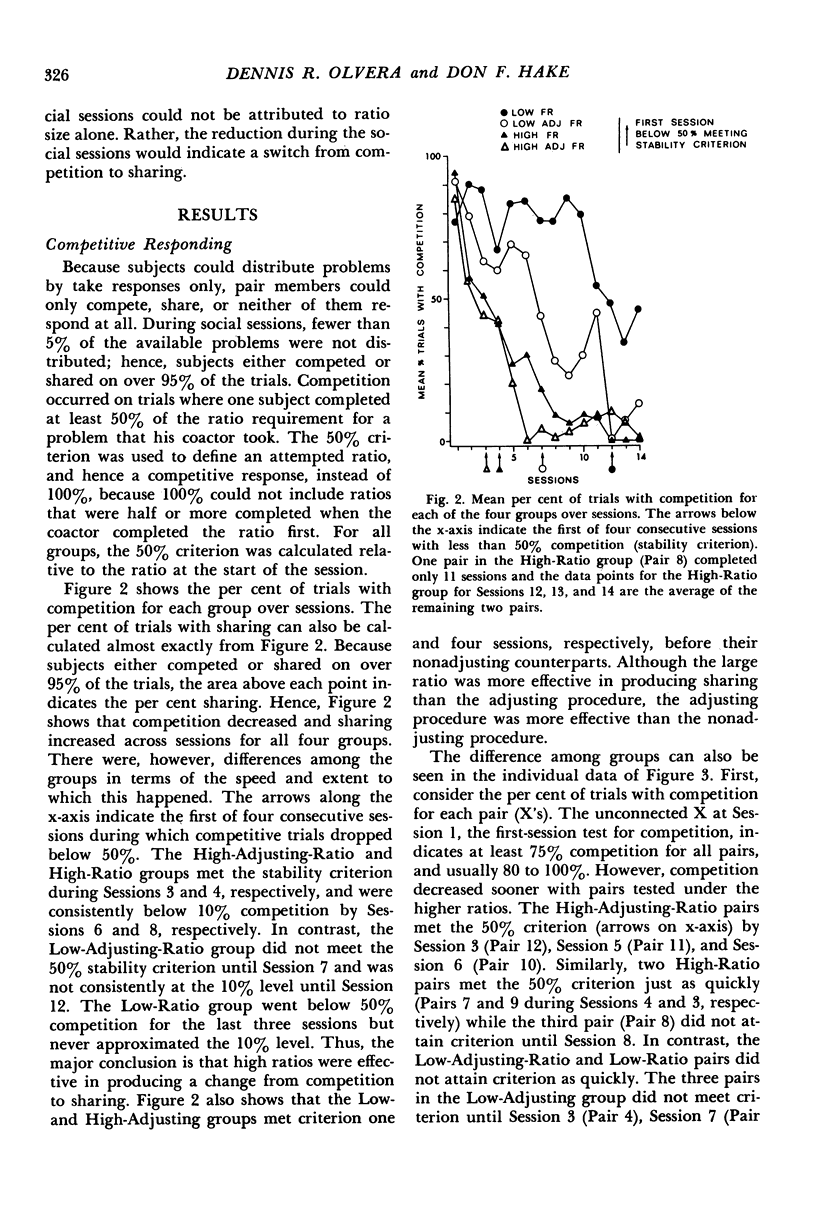
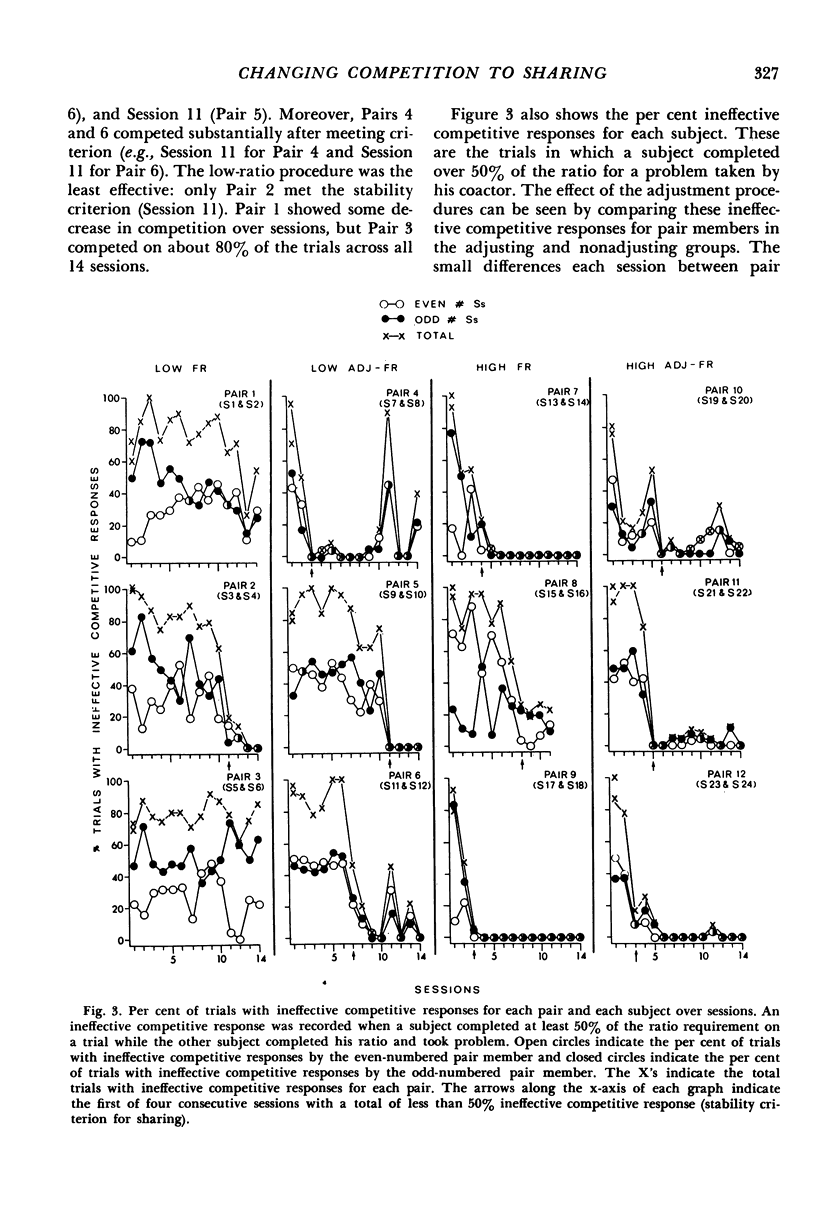
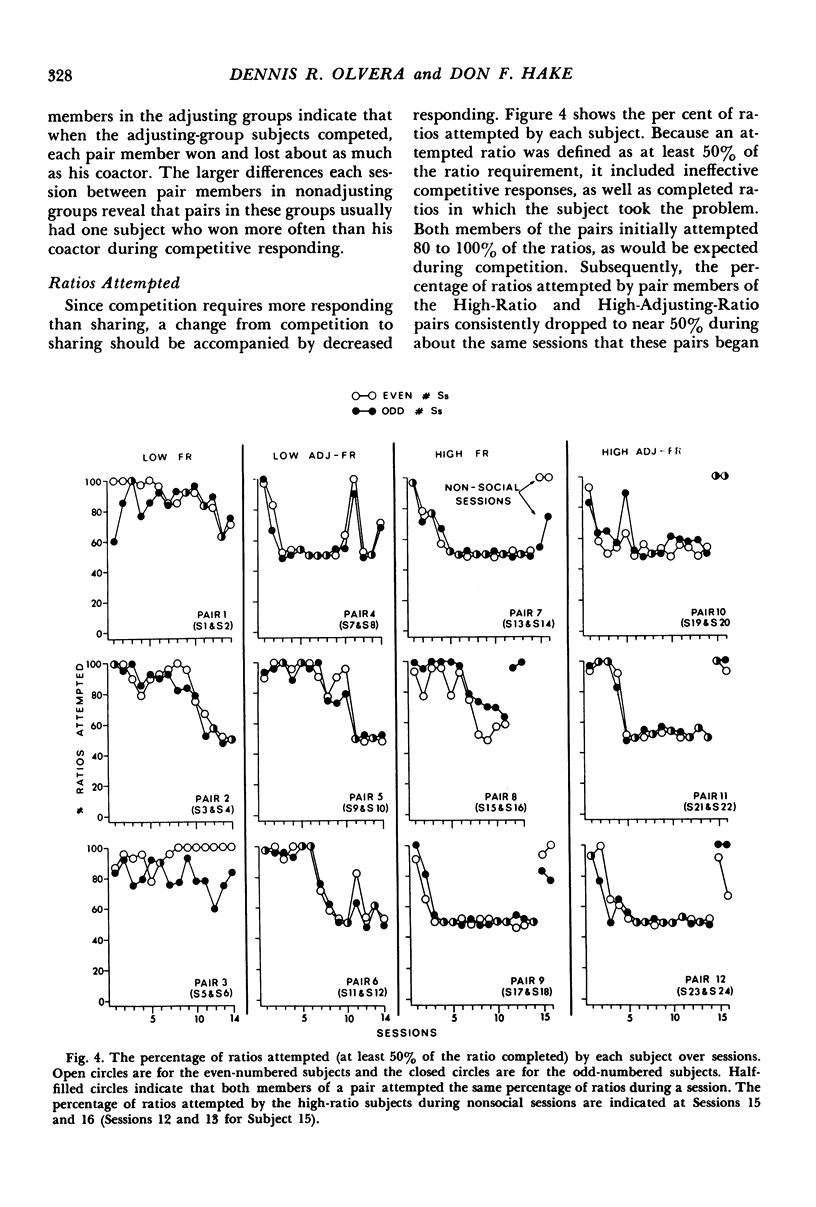
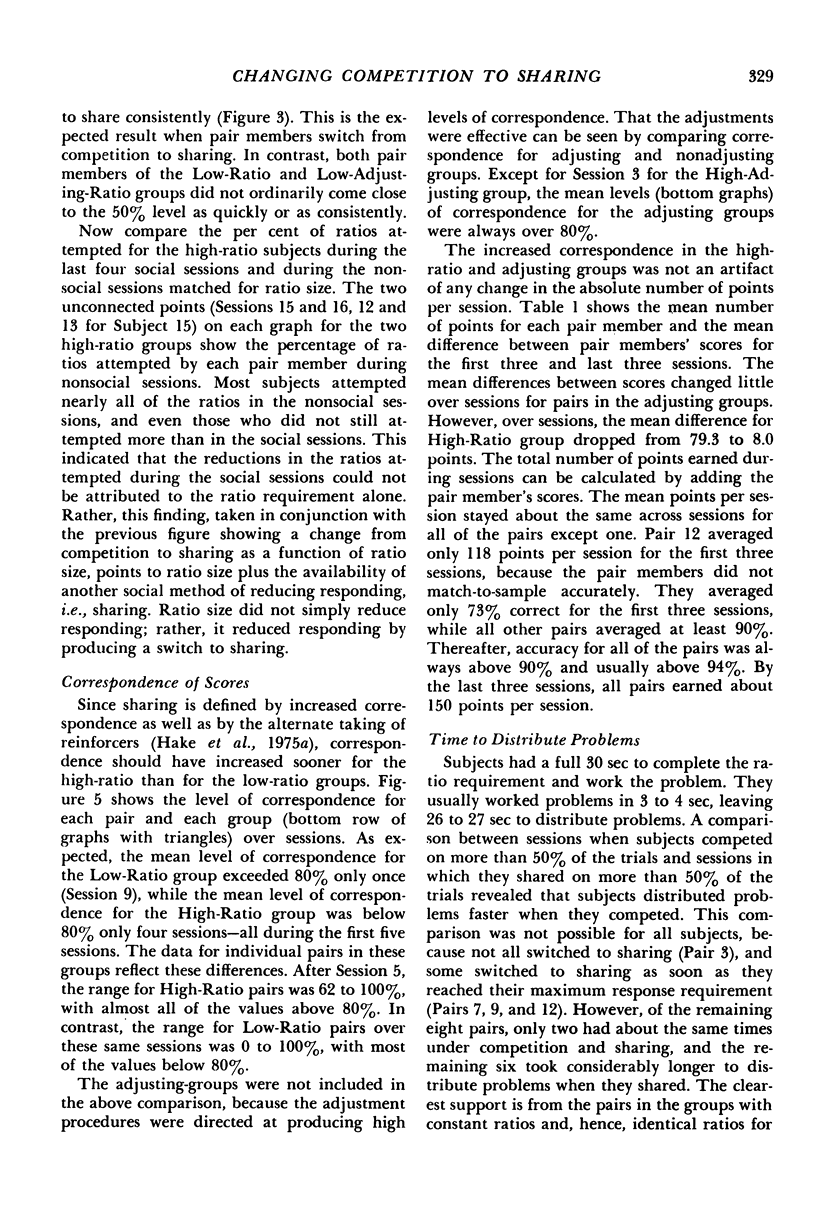
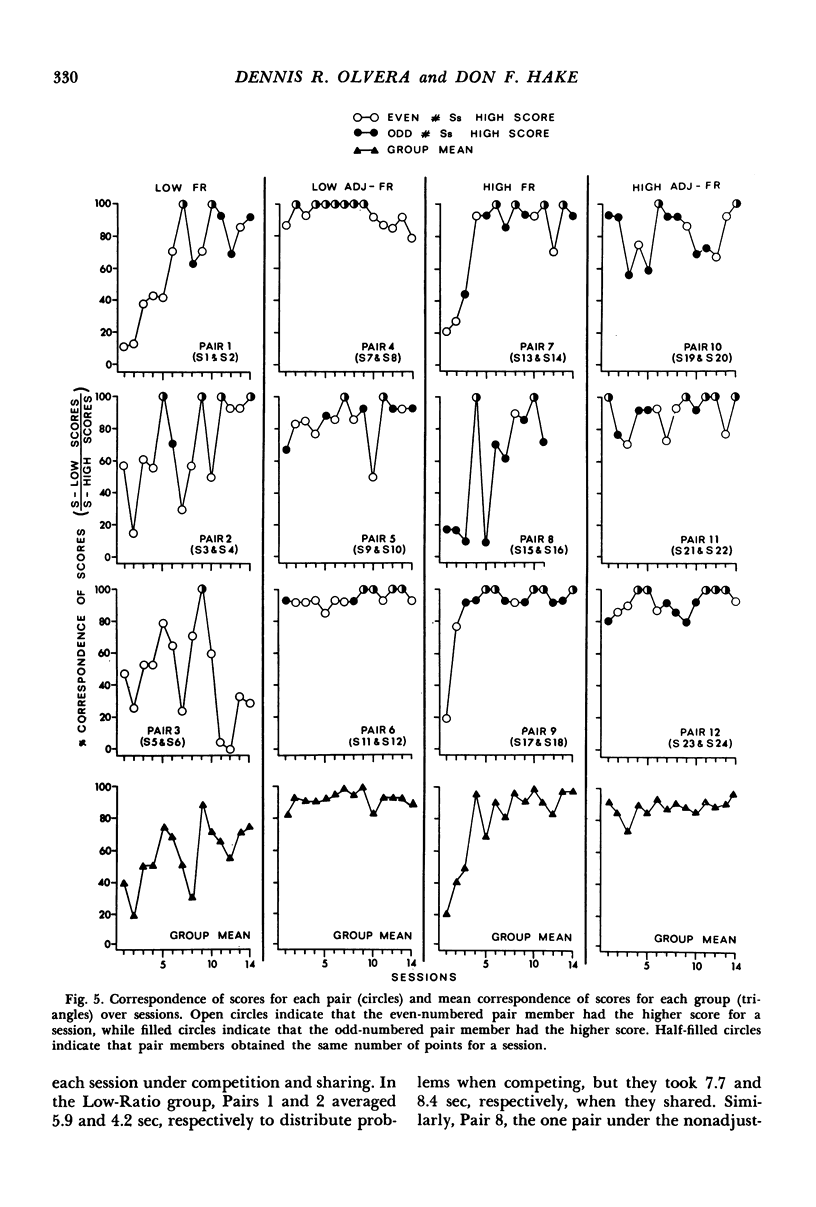
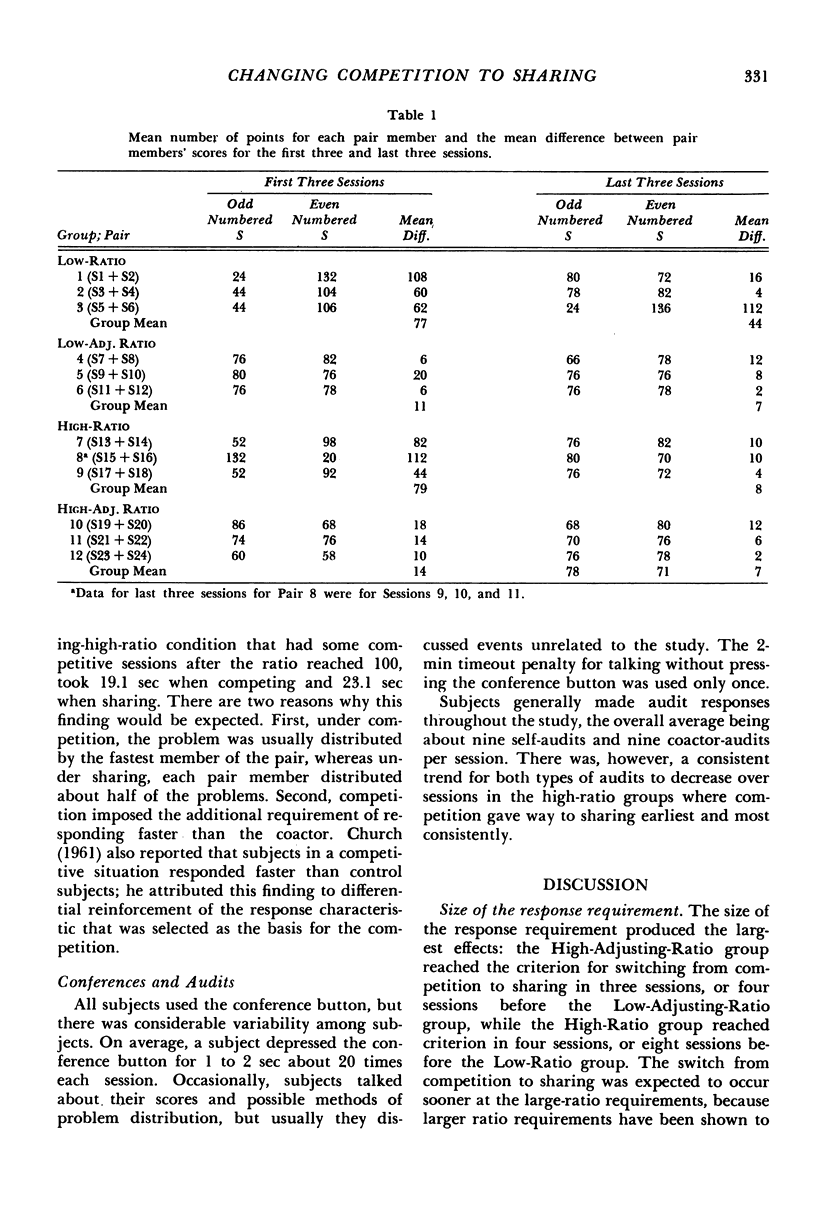
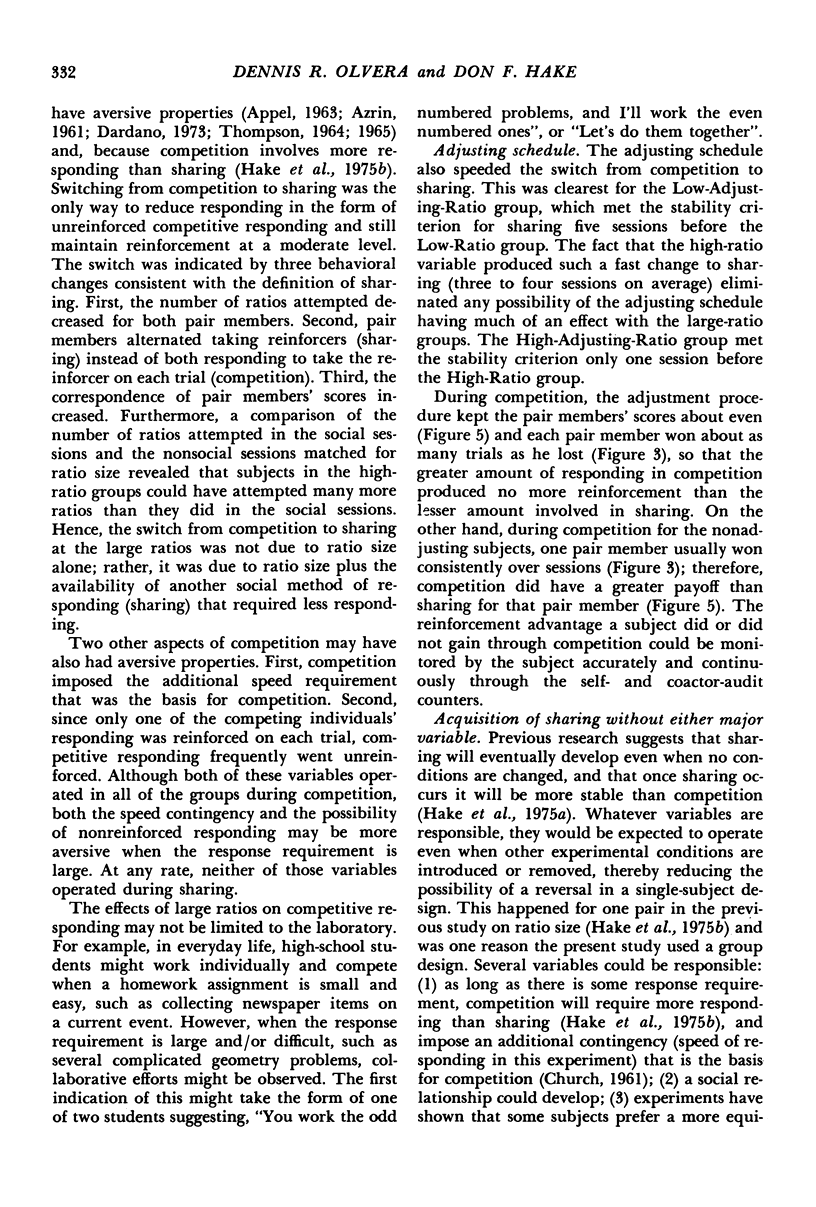
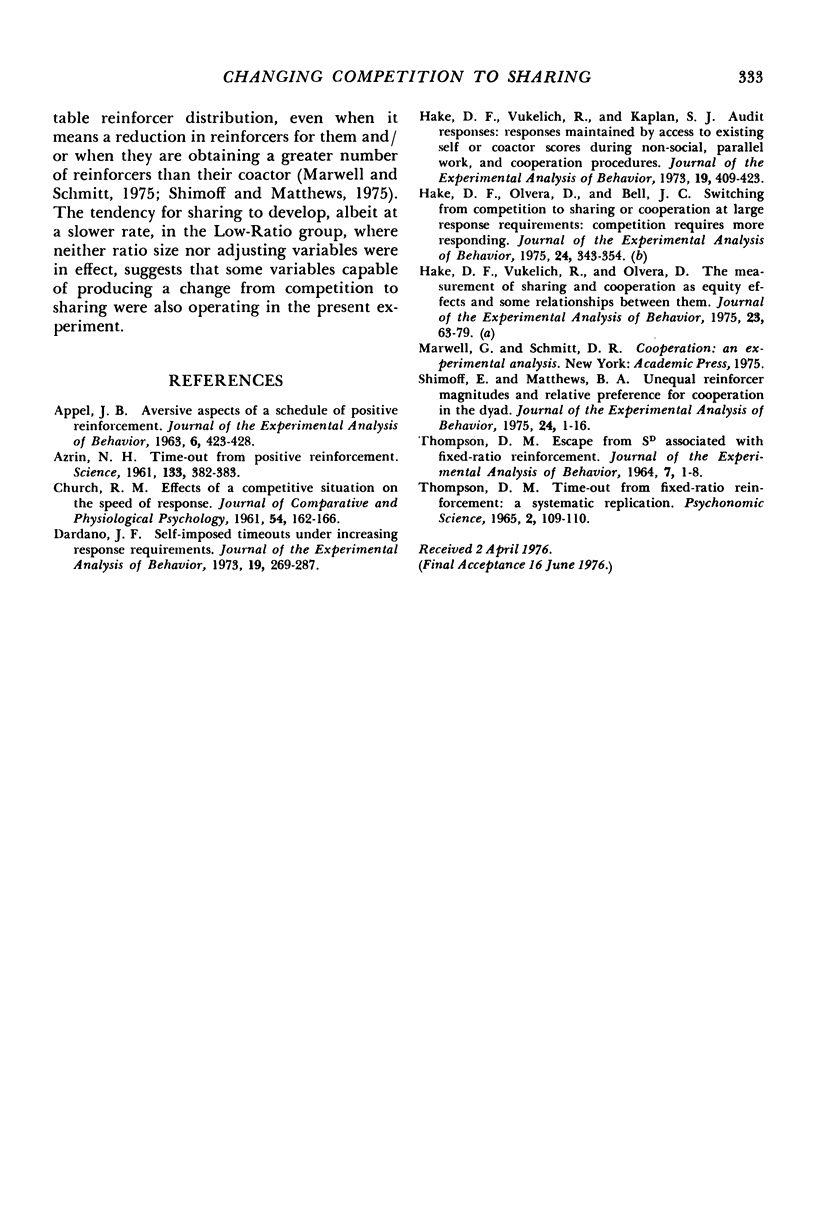
Selected References
These references are in PubMed. This may not be the complete list of references from this article.
- APPEL J. B. Aversive aspects of a schedule of positive reinforcement. J Exp Anal Behav. 1963 Jul;6:423–428. doi: 10.1901/jeab.1963.6-423. [DOI] [PMC free article] [PubMed] [Google Scholar]
- AZRIN N. H. Time-out from positive reinforcement. Science. 1961 Feb 10;133(3450):382–383. doi: 10.1126/science.133.3450.382. [DOI] [PubMed] [Google Scholar]
- CHURCH R. M. Effects of a competitive situation on the speed of response. J Comp Physiol Psychol. 1961 Apr;54:162–166. doi: 10.1037/h0042286. [DOI] [PubMed] [Google Scholar]
- Dardano J. F. Self-imposed timeouts under increasing response requirements. J Exp Anal Behav. 1973 Mar;19(2):269–287. doi: 10.1901/jeab.1973.19-269. [DOI] [PMC free article] [PubMed] [Google Scholar]
- Hake D. F., Olvera D., Bell J. C. Switching from competition to sharing or cooperation at large response requirements: competition requires more responding. J Exp Anal Behav. 1975 Nov;24(3):343–354. doi: 10.1901/jeab.1975.24-343. [DOI] [PMC free article] [PubMed] [Google Scholar]
- Hake D. F., Vukelich R., Kaplan S. J. Audit responses: responses maintained by access to existing self or coactor scores during non-social, parallel work, and cooperation procedures. J Exp Anal Behav. 1973 May;19(3):409–423. doi: 10.1901/jeab.1973.19-409. [DOI] [PMC free article] [PubMed] [Google Scholar]
- Hake D. F., Vukelich R., Olvera D. The measurement of sharing and cooperation as equity effects and some relationships between them. J Exp Anal Behav. 1975 Jan;23(1):63–79. doi: 10.1901/jeab.1975.23-63. [DOI] [PMC free article] [PubMed] [Google Scholar]
- Shimoff E., Matthews B. A. Unequal reinforcer magnitudes and relative preference for cooperation in the dyad. J Exp Anal Behav. 1975 Jul;24(1):1–16. doi: 10.1901/jeab.1975.24-1. [DOI] [PMC free article] [PubMed] [Google Scholar]


